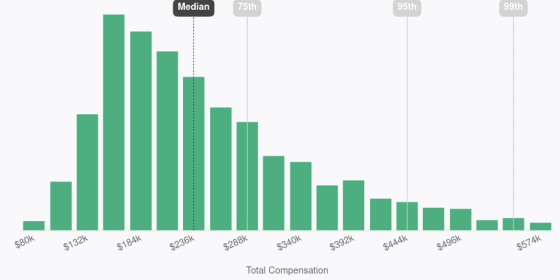Pointed out that it is wrong for companies to seek 'talented people'

Talent is largely a myth --Temporary heresy
https://blog.nukemberg.com/post/talent-is-largely-a-myth/
◆ Talented human resources
According to Shalom, many software development companies are looking for talented people, 'talents call talents,' 'value talents,' and so on. It is said that it is described in. In addition, an increasing number of companies are setting up specialized positions to seek out “talented human resources” such as talent acquisition .

However, Shalom wrote in
◆ Measurement of ability
In sports such as soccer and baseball, a clear score is recorded for each match. However, the score is the result of the interaction between each player and the team as a whole, and it is not clear which abilities of each player influenced the outcome of the match. Shalom points out that software development involves as many factors as sports, so it's completely unclear which capabilities will contribute to the success of software development. Also, unlike sports where the outcome is divided by score, 'goodness of code' has various aspects such as maintainability and flexibility. Since the importance of each aspect changes depending on the project and timing, it is difficult to measure the 'goodness of the code'.
Shalom pointed out that there is no way to measure the ability of software developers because there is no way to measure 'goodness of code', 'The reason why there is a hiring process such as interviews, test projects, recruitment committees is software Because there is no index that uniformly measures the ability of developers, it turns out that it is difficult to judge 'talented people'. '

◆ Talent is not static
'Even if you're good at college testing, you're not necessarily good at software development,' Shalom said, saying that it's wrong to decide whether or not to hire based on college grades. He claims that what is needed is 'adaptability' to acquire new abilities.
In addition, from the experience of encountering 'human resources whose productivity has dropped significantly compared to before changing jobs' and 'human resources such as' rough diamonds 'whose productivity has improved significantly compared to before changing jobs', adaptability is greatly influenced by the environment. Shalom points out. In this way, adaptability is greatly influenced not only by individual efforts but also by the environment, so Shalom argues that it is necessary to create an environment that develops adaptability rather than seeking 'talented human resources'. Did.

◆ Talent is not linear
According to Shalom, there are an estimated 25-30 million software developers worldwide. Silicon Valley giants such as Google, Amazon, Facebook, and Microsoft also employ hundreds of thousands of software developers, well over 1% of the world's developer population. Again, Shalom points out that it's difficult for software developers to hire people with the top 1% capacity.
Also, looking at Shalom's San Francisco software developer reward distribution graph, most software developers work at below median rewards, with the top 1% of software developers getting paid. You can see that it is less than 1% of the developer population. 'It's unclear if rewards and skills are strongly correlated, but only a handful of software developers are getting the top 1% of compensation,' Shalom said. He points out that what he asks for is fundamentally wrong.

◆ Think about talent from a different angle
Shalom concludes that seeking 'talented people' is pointless. It also emphasizes the need for a personnel model that fosters hired developers and develops talent by improving the environment and changing human resources evaluation methods.
Related Posts:
in Posted by log1o_hf







